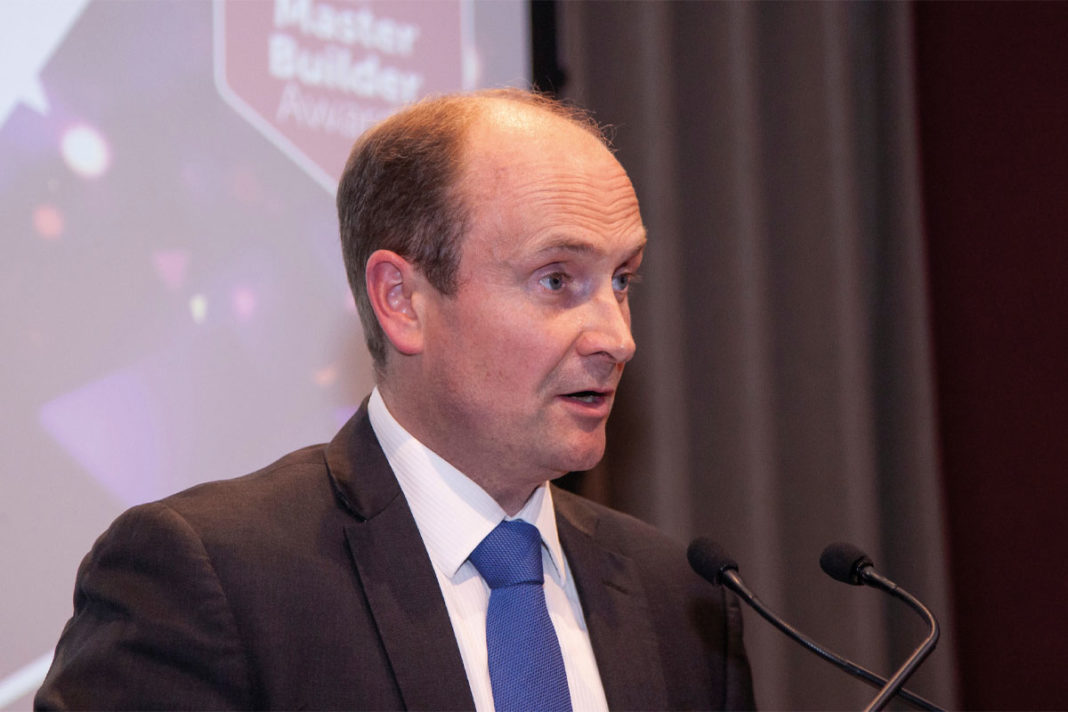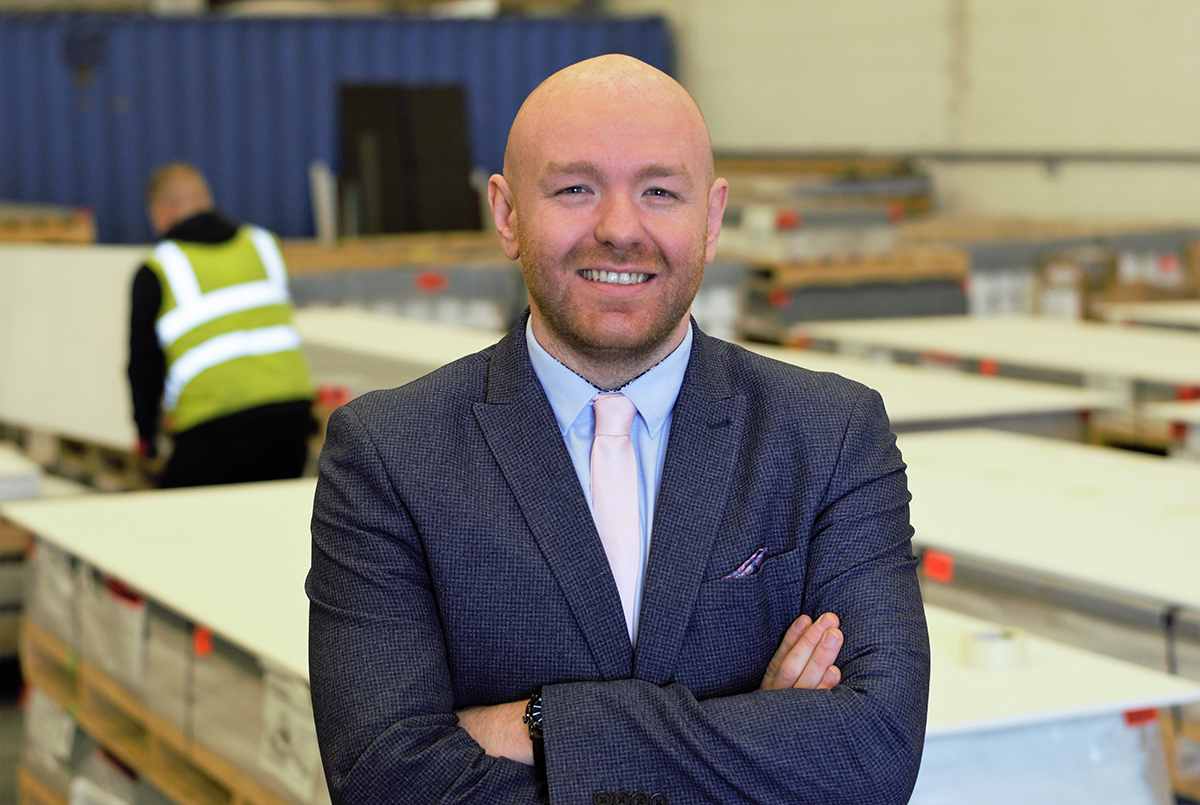
SCOTLAND’S construction sector is continuing to show resilience in the face of the cost of living crisis, with many local building companies reporting a ‘healthy pipeline of works’ despite well documented pressures on household budgets.
However, energy and material costs remain problematic, while helping employees navigate this tough period is a primary concern for many businesses.
Gordon Nelson, Scotland director at the Federation of Master Builders (FMB), told Project Scotland that the impact of the cost of living crisis came under the spotlight when the organisation’s Scotland board met in the Highlands recently.
With inflation hitting a 40-year high, Gordon revealed that overall feedback from bosses of Master Builder companies across Scotland was ‘more encouraging’ than he had feared.
Gordon said that everyone across the industry has experienced the ‘rampant price inflation and elongated lead times’ for core construction materials from early 2021.
He added, “The consequences for our members being a disruption to build programmes, a further squeeze on profit margins and demands for crystal balls to help price future works!
“During our board meeting, most reported a healthy pipeline of works and volume of enquiries for future works. The consistent challenge shared by members from Stornoway to Stirling though, is in converting the volume of enquiries into actual work.”

Gordon revealed another inflationary squeeze hitting the industry is insurance.
“FMB’s Insurance Services, who specialise in construction and building insurance, informed me that today, typical annual premiums for contractors liability insurance have risen by around 50% compared to two or three years ago,” he said.
“For professional and legitimate building contractors who have been grappling with soaring material costs and the end of the red diesel debate, this is yet another increase in business overheads, as is the rise in premiums for Professional Indemnity Insurance.”
Gordon welcomed the introduction of the Energy Bill Relief Scheme, even though gas and electricity costs don’t make up a big share of a typical FMB members’ total running costs. He also welcomed the reversal of the 1.25% rise in national insurance contributions and revealed it will be ‘interesting’ to see how the Scottish Government responds to some of the recently announced measures south of the border around changes to stamp duty and planning reform.
For the FMB, Gordon added there are ‘two key areas’ governments must take action on to shore up small reputable building firms who employ competent tradespeople.
“One is driving demand for fabric improvements and energy retrofit upgrades to boost the energy efficiency of our homes,” he explained. “A co-ordinated national retrofit strategy encompassing all four nations of the UK is vital if we are to meet our climate change targets. With around one million Scottish homes needing to have fabric improvements or low carbon heating systems installed to reduce their energy consumption, the clock is ticking.
“The second area will help ensure that the quality of the domestic retrofits works delivered on homes around the UK is high. The introduction of a mandatory licensing scheme for building firms would curb rogue traders and keep clients safe. With rising overheads for good builders in doing good business, and a client base looking to tighten its belt, a licensing scheme would bolster the backbone of the construction industry: construction SMEs.”
A number of construction-related firms have announced measures to help staff in recent months, including one-off payments and – in the case of the Springfield Group – a plan to pass National Insurance savings onto employees following the UK Government’s decision to reverse the 1.25% increase which came into effect earlier this year.
Gary Thorn, founder and MD of Cumbernauld-based Cube Glass, told Project Scotland that the business provided a 10% rise in wages at the beginning of this year, and will continue to evaluate how to help employees in the coming months.
“It may mean a slightly bigger bonus than usual this October at our financial year end to help them all through the expensive winter period,” Gary said.

In terms of the business impact of the cost of living crisis, Gary revealed that the biggest issue Cube Glass has experienced over the past year is the cost of materials rising to a point where clients can no longer afford to build to the same size or quality, so are now looking to reduce the size of their new homes, or in some cases reduce the number of projects being undertaken because they simply can’t afford the material price hikes.
Malcolm Morrison, director at GMG Energy, told Project Scotland the business has noticed a ‘slowing down’ of phone calls for construction and order book. The firm has increased salaries by 10%.
Malcolm revealed he’d like to see governments reduce energy costs, rates, and NI contributions as well as lift land-based taxes.
Architectural facades distributor Vivalda Scotland gave employees a £1,000 cost of living grant to help ease the financial burden.
Branch manager William Barlow said, “Life will no doubt be tough for many people as energy bill increases bite but it’s good to work for a business that always has one eye on supporting its staff.”
William said that while Vivalda is not a hugely energy intensive business, the company has seen a shift in the market since the cost of living crisis kicked in. “Since the late summer we’ve seen a dip in enquiries for cladding products for the domestic market,” he explained. “This would fit in with the knock-on effect of families putting off planned DIY or home improvement projects until the scale of the energy price rises is fully understood.

“This slight softening in demand has been balanced out by the rise in remedial cladding work, as local authorities and landlords ensure existing high rise blocks meet safety regulations in the wake of the Grenfell Tower tragedy.”
MSP Facades, meanwhile, said the aluminium facades market has been hit by a ‘perfect storm’.
Commercial manager Derek McDougall said, “As Scotland’s most well-established manufacturer of bespoke, ventilated façade systems our processes use a lot of energy and metal, the costs of which have both jumped significantly over the last year. While we’ve done what we can to improve efficiencies and cut costs, inevitably this has led to us having to pass on these price hikes to our customers.
“At one point the cost and availability of aluminium was so volatile we were only able to provide same-day quotations for projects. Thankfully prices are now more predictable and availability has improved, so we’re able to provide customers with quotes with much more realistic shelf lives.”
Gillian Thomson oversees the operations of Prism Powder Coating, which is also based in Cumbernauld. Commenting on the recent rise in energy prices she said, “Our powder coating operation is based on running several burners almost 24/7, so as you can imagine our energy costs have risen astronomically over the last year. The nature of our business means we cannot simply turn off our burners, all of which consume significant amounts of gas.

“In January 2022, our monthly gas bill was £2,050. By June, this had risen to £3,108, an increase of more than 50% in just six months. That scale of increase is simply intolerable for many businesses. While we are lucky to be part of a larger UK owned business that can shoulder some of the cost, it is inevitable we have had to pass increases onto to our customers. To make matters worse we’ve also seen significant increases, of around 20%, in powder costs, owing to supply chain issues overseas.
“The new government support package announced in late September is very welcomed news, however this is just for a six-month period. Ideally we’d like to see more fundamental reforms of the UK energy market to ensure long-term competitive prices.”
In terms of helping employees through this financially challenging period, Musab Hemsi, director at Anderson Strathern and a Scottish employment law specialist, said that following pandemic-related financial losses, offering fully-fledged pay rises might not always be an option for companies.
“Alternatives such as a one-off stipend or tax-free vouchers could help workers struggling with increasing prices,” Musab added. “There are also various low or no-cost supports that might help staff, including facilitating car-share arrangements to lower petrol costs, highlighting any shopping or gym discounts that you offer, or if it’s feasible, consider offering subsidised meals on site.
“Supporting staff with the mental weight of financial pressure can also play an important role. For example, providing access to a mental health first aider will help employees while also allowing managers to get a better understanding of the issues their people face.
“While more of a commitment, an Employee Assistance Programme – providing one-to-one financial advice and assistance on an individual’s situation – can also help significantly.”
With regard to what the government can do to help the construction sector navigate this period, Musab explained that several options would help businesses, such as boosting apprenticeship training schemes and making them less bureaucratic.
“In the longer term, maintaining a commitment to delivering net zero by 2050 is a key way to shield businesses and employees from future energy price shocks, and presents significant opportunities for private investment in the construction industry which, of course, helps finances,” Musab added.
“The UK Government’s Levelling Up strategy, unveiled in February 2022, also provides considerable opportunities for the construction sector including local job security and creation. The retrofit schemes to help make homes more energy efficient also have potential, but the bottom line with these initiatives is that in order to see real impact, government must be committed to working collaboratively with the industry.”








